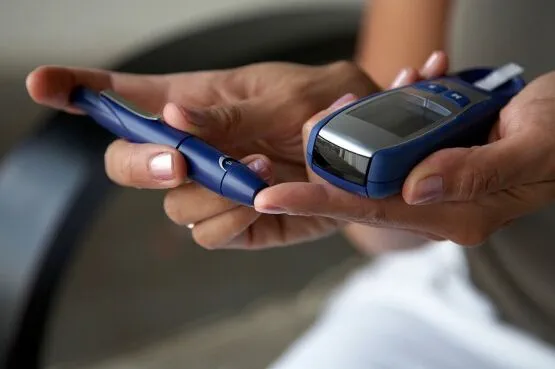Social drinking: are you getting the right balance?
For many people in the UK, socialising involves drinking alcohol. But it can be hard to keep track of how much we drink in social situations. We all know that drinking too much alcohol can be bad for our health. But how do you know if you’re getting the right balance? Read on to find out more.

What is a social drinker?
Social drinking is when someone drinks in social situations. There are lots of reasons why people may choose to drink at a social event, including to:
- relax
- increase their confidence
- fit in with the people around them, who may also be drinking
- celebrate special occasions such as weddings or birthdays
Social drinking often involves drinking a moderate amount of alcohol, which may be within recommended drinking limits. But that isn’t always the case.
In the UK, national guidelines recommend drinking no more than 14 units a week on a regular basis. This is equivalent to:
- six pints of four per cent beer
- six medium (175ml) glasses of wine
- 14 single spirit shots (25ml)
This can quickly add up and may be hard to keep track of if you’re socialising regularly. Up to 1 in 4 adults in the UK drink more than 14 units a week.
When can social drinking go wrong?
Excessive social drinking might follow a pattern of binge drinking. If you drink more than eight units (for men) or six units (for women) in one drinking session, this is binge drinking.
If you binge drink or regularly drink too much, you might be putting your health at risk. Excessive alcohol consumption has been linked with an increased risk of:
- several different types of cancer, including breast cancer and bowel cancer
- high blood pressure (hypertension) and diabetes
- heart disease and strokes
- liver damage
What are the signs that I might be drinking too much?
Some warning signs that you’re drinking too much include:
- regularly binge drinking
- engaging in risky behaviour, or blacking out, when you drink
- feeling shame over the amount you drink
- using alcohol to escape problems, or to self-medicate
- having frequent hangovers, or not feeling well after drinking
- not knowing when to stop drinking, or not being able to stop even if you know you should
If you think you’re drinking more than you should, speak to your GP. They’ll be able to support you and direct you to longer-term support services in your local area. You could also try some of the tips below.
6 tips for cutting down on drinking at home or when socialising
You can introduce some simple changes to cut back on how much alcohol you drink. Here are some ideas.
1. Keep track
It can really help to keep track of exactly how much alcohol you drink. There are plenty of apps you can use on your phone that you can update while you’re on the go. At home, try to get into the habit of measuring your glasses of wine or spirits.
2. Shrink your drinks
Some people automatically order ‘a large’. Swap a large glass of wine for a small one, or a pint of beer for a half – or even a shandy. Be mindful and try to savour your drink. This will make it last longer and mean you’re least likely to order more.
3. Take note of the alcohol content
Drinks can vary greatly in how much alcohol they contain. Take more interest in how many units your drink of choice contains. Why not try out some lower- or non-alcoholic alternatives?
4. Drink-free days
As well as limiting the number of units you drink a week, aim to have a few alcohol-free days too. Check out our tips for an alcohol-free night out.
5. A dry home
Rather than stocking up at home, limit your alcoholic drinks to when you go out. This will help you break any habitual drinking habits. If soft drinks seem boring to you, research some recipes for non-alcoholic cocktails. Get creative!
6. Make a change
If your social life revolves around pubs, bars and eating out, try something new to break the cycle of drinking. Why not try taking up a new class, or swap pub lunches with a picnic in the park? Cooking at home instead of eating out may help reduce your temptation to drink.
If your friends pressure you to drink, try and stay true to your goal. The more you say no, the less they’ll ask. You may find it easier to make these changes if you make them with a friend or partner. You can keep each other going and support one another.
Are you interested in learning more about your health? Discover more about our range of health assessments.
-
Sources Sources
- What is a social drinker? Alcohol Rehab Help. alcoholrehabhelp.org, updated June 2023
- Sudhinaraset M, Wigglesworth C, Takeuchi DT. Social and cultural contexts of alcohol use. Alcohol Res 2016;38:35-45
- Alcohol consumption: advice on low risk drinking. UK Government. gov.uk, published August 2016
- Binge drinking. Drinkaware. drinkaware.co.uk, last reviewed June 2022
- Alcohol consumption UK. Drinkaware. drinkaware.co.uk, last reviewed June 2024
- The benefits of drinking less. Drinkaware. drinkaware.co.uk, last reviewed May 2023
- How does alcohol cause cancer? Cancer Research UK. cancerresearchuk.org, last reviewed September 2023
- Alcohol and blood pressure. Drinkaware. drinkaware.co.uk, last reviewed October 2021
- Global Burden of Disease Alcohol Collaborators. Alcohol use and burden for 195 countries and territories, 1990-2016: a systematic analysis for the Global Burden of Disease Study 2016. Lancet. 2016;392: 1015-1035
- Effects of alcohol on your heart. British Heart Foundation. bhf.org.uk, accessed July 2024
- Alcohol-related liver disease. British Liver Trust. britishlivertrust.org.uk, accessed July 2024
- How to cut down on alcohol at home. Drinkaware. drinkaware.co.uk, last reviewed May 2023
About our health information
At Bupa we produce a wealth of free health information for you and your family. This is because we believe that trustworthy information is essential in helping you make better decisions about your health and wellbeing.
Our information has been awarded the PIF TICK for trustworthy health information. It also follows the principles of the The Information Standard.

More general health advice articles
Did you find our advice helpful?
We’d love to hear what you think. Our short survey takes just a few minutes to complete and helps us to keep improving our healthy lifestyle articles.
Legal disclaimer
This information was published by Bupa's Health Content Team and is based on reputable sources of medical evidence. It has been reviewed by appropriate medical or clinical professionals and deemed accurate on the date of review. Photos are only for illustrative purposes and do not reflect every presentation of a condition.
Any information about a treatment or procedure is generic, and does not necessarily describe that treatment or procedure as delivered by Bupa or its associated providers.
The information contained on this page and in any third party websites referred to on this page is not intended nor implied to be a substitute for professional medical advice nor is it intended to be for medical diagnosis or treatment. Third party websites are not owned or controlled by Bupa and any individual may be able to access and post messages on them. Bupa is not responsible for the content or availability of these third party websites. We do not accept advertising on this page.







